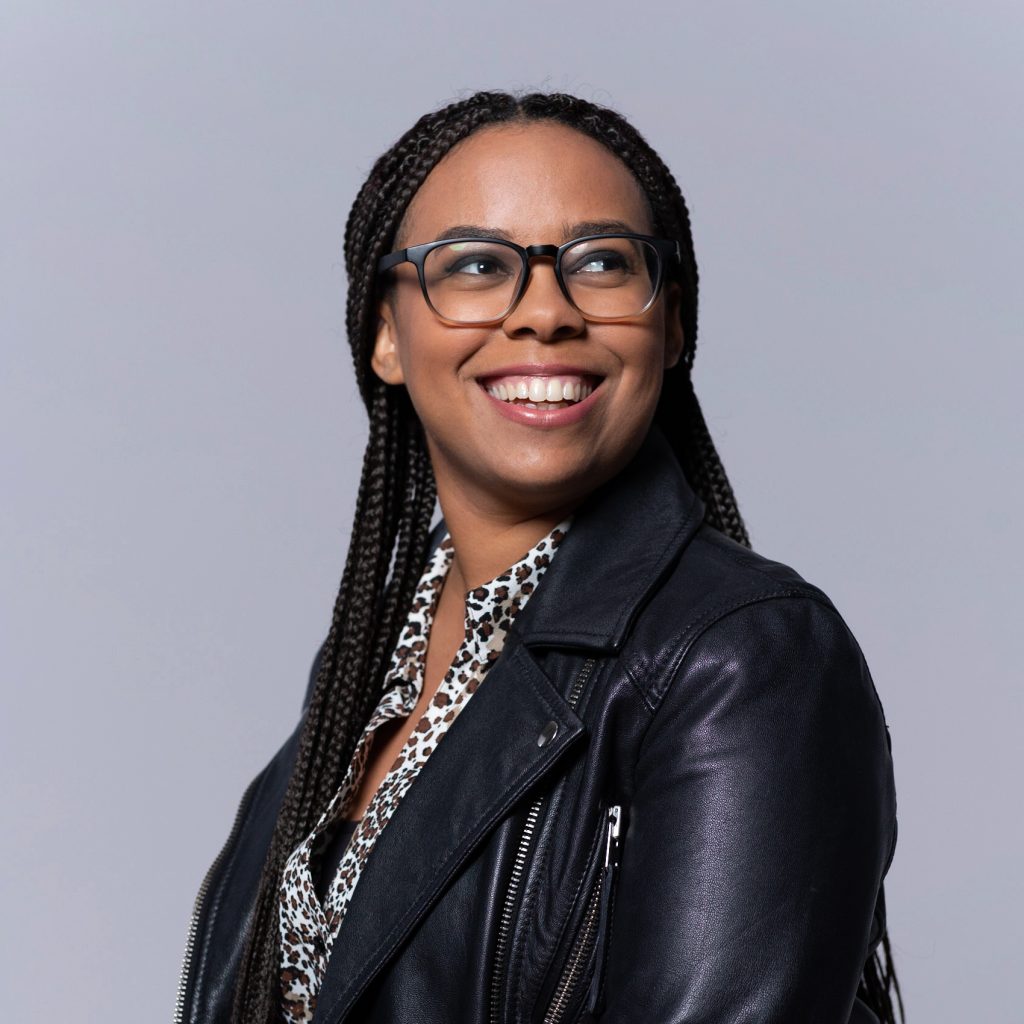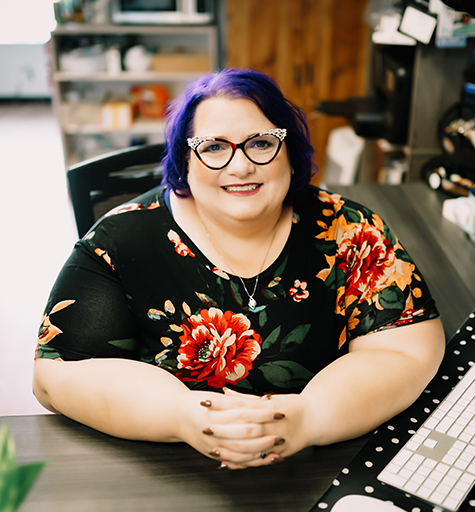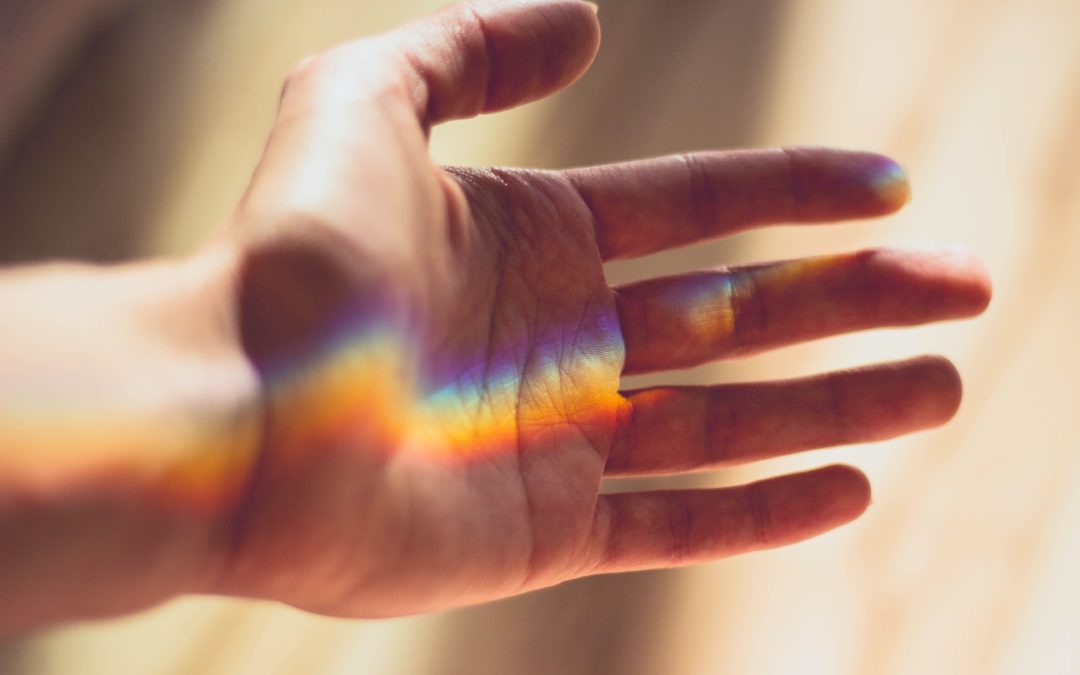Show Notes
UPDATE: We wanted to provide some additional context to this issue that we were not aware of when this episode was recorded on the morning of August 24, 2023.
- In online conversations that followed the mentioned tweet, there were conversations around the potentiality of gun violence like, “What if someone brought a gun?” While no direct threats were made to the specific event, these words were strong enough to encourage organizers to invest additional funds into security and bag checks.
- The tweet we mention was deleted Thursday evening. And the account behind it did publish a public apology.
- WordPress-focused companies such as Automattic do sponsor other LBGTQ focused groups/events outside of the WordPress community, such as Out in Tech.
When people point to social issues that affect many, we can often look at that as a political issue. This kind of thinking creates division where there doesn’t need to be any. And overlooks the human beings at the center of these issues. In this episode Allie and Michelle look at a recent discussion relating to WordCamp 2023 as an example of unfairly and unjustly politicizing and subsequently dehumanizing people at the core of important conversations.
Episode Transcript
Speaker 1:
Welcome to the Underrepresented In Tech podcast, hosted by Michelle Frechette and Allie Nimmons. Underrepresented in Tech is a free database built with the goal of helping people find new opportunities in WordPress and tech overall.
Michelle Frechette:
Hi, Allie.
Allie Nimmons:
Hi, Michelle.
Michelle Frechette:
My voice is a little hoarse. This is day three of me being at WordCamp US, the Community Summit, and today is contributor day, and I have been talking over crowds of people and parties for the last couple of days, so I’m a little hoarse, but I’m here and I’m so happy to see you.
Allie Nimmons:
Yay. Yeah, I was going to say people can’t see, but I can see you are in an entirely new space. Usually when we record, you’re either in your home office or you’re in your office, office and you are in what looks like the maybe lobby of a hotel, which is very cute.
Michelle Frechette:
I’m on the second floor in a little alcove type space. If I move, you can see there’s chairs and tables behind me and everything too, trying to speak. I don’t have my headphones. I don’t have my microphone. It’s all in the room, and I couldn’t remember what room number I was in and somebody went to try to get the for me. So I am just trying to be close enough to the microphone to have my voice hopefully picked up and nothing else.
Allie Nimmons:
Nice. Yeah, you sound great.
Michelle Frechette:
Okay, good. Good.
Allie Nimmons:
Yeah. Cool. Well, so I have not really been closely following the WordCamp US narrative or things that have been going on or have been happening. I’ve been doing my own thing. But the one thing that I have overheard, and that you just gave me some more details on, is a conversation around the Pride Party that Codeable and a couple of other companies have been hosting, staying at the last couple of flagship events there. I know that there was a Pride party at WordCamp Europe. There was a Pride Party or a WordCamp Asia. I was able to attend that one and back really over the last couple of years, and it’s now been kind of a tradition that in all of the different after parties that we tend to have at these things, there is now specifically a pride party for the queer community of WordPress and allies, I should say. In everything I’ve ever seen and learned and heard about the Pride parties. It’s never a X type of people, only it’s, safe space for X type of people and people who are supportive of culture.
Michelle Frechette:
It’s an inclusive safe space. Absolutely.
Allie Nimmons:
Precisely. So I’ll let you fill our listeners in on the general gist of what happened because on the show we like to talk about general ideas and general concepts and thought processes that we tend to disagree with, and having examples helps. But we’re not here to trash anyone’s name. We’re not here to make this personal. We’re using this as an example, and then we’ll talk about the overarching problem that this exemplifies.
Michelle Frechette:
Yeah, exactly. So I run the Twitter account for Seller WP, one of the four companies that are sponsoring the Pride Party. And somebody in the community quote-tweeted one of the invites that I put out and basically called us out for politicizing WordPress through the Pride Party, and that they didn’t think that a WordCamp was any place to politicize that. Tagged our companies with the words do better. I’m not responding as a company. I’m not moving that narrative forward. I’m not giving it any, I’m not giving that individual any attention or time through official channels, but in my opinion, this is us doing better, supporting Pride, supporting underrepresented groups in WordPress, in tech is a way for every company to do better. And so yeah, I am all for doing better. I think that’s what we’re actually doing. I think that’s what you and I do through Underrepresented in Tech, and I am the first to say nobody gets it perfect, right?
You and I aren’t perfect. What we say here, sometimes people disagree with. And everybody’s viewpoint, who’s an ally in the community counts, and the way that somebody is an ally, it might not be exactly the same way I’m an ally and we can both be doing good allyship, but in different ways. So to say that we’re not perfect for sure, but the idea of always doing better and improving the way you do things and being supportive of smaller subsets of underrepresented folks in technology and in WordPress here is one way certainly that we can all do better. And so I’m excited. We’ve sold out the party. There’s going to be like, I don’t know, 450 people at some point or another coming through the doors to celebrate and to be there at that party, including some of the bigger names in WordPress. So I’m excited about that.
And some of the different companies, and there’s seven different things people can attend that night. There’s almost 2000 people here. Certainly everybody can’t be at one party because there’s just not room in any venue for that. So it is one of the bigger events that night. We’re super excited to be supportive and to support our community members and to have fun and there’s fun things that are going to happen there. The camaraderie, I will lose my voice more because I’ll be talking over huge crowds by that point, but I’m super excited about the possibilities and just being a supportive community member. I got a rainbow T-shirt and I can’t wait to wear it. I’m just going to say.
Allie Nimmons:
The thing that disappoints me and frustrates me about that is how backwards it is. Because I can’t speak for other countries, but here in the United States, at least, our politicians tend to utilize social issues for their own platforms, in order to mobilize different groups of people in order to win votes, in order to sway opinion and blah, blah, blah. Issues of things like gay rights have been politicized in sometimes helpful ways in terms of creating legislation a lot of the times in very unhelpful ways. And so the rhetoric, the zeitgeist now is that certain social groups are inherently political because they are now divisive or they have become more divisive due to our politics.
So to point out something like a Pride Party, which is about people making sure that people who in this community honestly are not necessarily celebrated or uplifted. Not to say that they’re brought down, but we don’t really have anything in the WordPress space or community right now that is in support of the community. I think there are companies like Automatic that have Slack groups maybe for their employees, but that’s really as far as it goes. And so to have our companies come together and say, we’re going to put our money where our mouth is, we’re going to create a safe space for people to celebrate this part of their identity is fantastic.
I also think, and I had a conversation about this with a friend of mine recently, queer, gay, rainbow, all of these things, again, at least in this country, but I think in a lot of other countries, people jump to that and immediately think NSFW, right? They think sex, which is so off-base. There’s so much more to being on the rainbow spectrum than sex. This is a part of people’s identities that they’re often in professional settings encouraged to hide. And so for us to depoliticize that by opening up spaces for people, I mean, WordPress is, and particularly these events are much, much more social than a lot of other tech events. We focus on the tech and we focus on the code, and we focus on the business and all that stuff.
But so much else about WordPress is so extremely personal and social, for better or for worse, sometimes it has its drawbacks, but it frustrates me that the person who said this, and other people who have this mindset that X, Y, Z is political, are not choosing to think about what it actually means to people, to human living beings, to have an event like this where they can feel safe and heard and appreciated.
And the fact that, like I said, our companies are supporting it in a public way. And it’s not even for us to say WordPress is supporting this. We like to create this identity, this entity rather, that is WordPress. And WordPress, I think in this community means so many different things. It means software, it means a CMS, it means a community. To some people in some ways, we tend to think of WordPress as this single entity, and it is not so to say, oh, WordPress is supporting, WordPress is doing this. At a certain point, what does that even mean? To the average everyday WordPress user, this affects them in no way at all whatsoever. Does not affect the software, does not affect the code, does not affect the business. It is for an event to celebrate the people at that event. And that is all it is.
Speaker 1:
We hope you’re learning a lot from the podcast. If you have any questions or need specialized help making your space more diverse, equitable or inclusive, book a consulting session, audit, or strategy service with us, just go to underrepresentedintech.com/services for more information. Back to the show.
Michelle Frechette:
So one of the things that I want to mention is that I’ve heard people’s throwing around the term WP drama, and we hear that a lot, right? The WP drama, the WP drama. But I want to remind people that people aren’t drama. This issue is talking about the essence of human beings. And human beings aren’t drama. It’s like saying, well, she’s got red hair, she’s so drama. Or she is in a wheelchair, what WP drama. She wants to be able to use a ramp, what a drama queen, kind of thing. The fact that people exist in their own sexuality and their own gender roles is not drama. It is human beings and humanity. And this is not an issue. People are not an issue that need to be solved. These are people in a community to be embraced and loved for who they are.
I’ve been thinking a lot this week about the fact that… And I think I mentioned this in a previous episode, but we’ve had over a hundred now, so who knows. But in a previous episode, I think I mentioned the fact that once I was at an event for school boards and I walked into a room that was talking about how to support school children, school kids, high school, and even lower, who were in the LBTQ community. And the first thing they did when they started, they said, who here considers themselves gay tolerant? And this was in the late nineties. Yeah, late nineties. And so everybody raised their hand and they looked at you and they said, do you want to be tolerated? And I was like, oh, yeah. Right. So at the very, very least, tolerate people and let them live their lives. Better is to accept people for who they are. And the best is to love people for who they are and accept them, love them, because that’s the essence of who they are and what makes each of us an individual.
And nobody should be politicized, and nobody should be lambasted, and nobody should be thought any less of because of who they love or how they love. And so this pride event at WorkCamp Us this week, to me as an ally is a very, very important event. I think it’s important to show our allyship, to show that we love, accept and accept people. And at the very least, if you are not somebody who can love and accept, tolerate and move on, you do not need to politicize people. We do not need your commentary. If you are a customer and you don’t agree with us, then move on to another solution and vote with your dollars. Give us your opinion, your dollars. We do not need to hear from you that you don’t agree and that you think it’s your responsibility to tell everybody what you think of us because we support a community, a sub-community within our community, a smaller group of people, of underrepresented people, and who they are.
Allie Nimmons:
And I mean, it makes me think about, we have other subgroups in this community focused around underrepresentation. Some of those groups tend to have events. Good example of that is Black Press has had in-person and virtual events. We do have a Ladies of WP Slack channel, and I believe is still active. I don’t know if that group has had any events, but say for example, the Ladies of WP Slack channel decided that at WordCamp US, they wanted to have a meetup and celebrate the women who make WordPress. That is also a group of people who have been politicized. There’s lots of stuff in politics right now about women’s rights, reproductive rights, income equality, all of that sort of thing. So if there was a Women of WordPress group or event after party, whatever at WordCamp US, would you say, oh, why are you politicizing WordPress by celebrating women?
It’s the same thing, but you would never say that. And it really comes down to these personal biases of, well, I would never attend an event like that because X, Y, Z personal reason. And so it must not be appropriate. It must not be allowed. And that’s selfish. It’s a very selfish approach to other people’s experiences. And I fully agree with what you said, that me saying that on the podcast is not going to change anyone’s mind if they’ve really decided they believe that. But the best you can do as a supportive community member is to just not say anything. If you really feel like that, that it does not apply to you. If it doesn’t resonate with you, if you don’t feel connected to it, then don’t say anything because then it’s not for you. Not everything is going to be for you.
Michelle Frechette:
And your opinion doesn’t need to be broadcast about every single thing.
Allie Nimmons:
Yep, absolutely.
Michelle Frechette:
Support, absolutely. Praise, all the time, but to put other people down is not a nice thing. So let’s not do that.
Allie Nimmons:
Unless somebody is actively hurting somebody else, which that’s not the case here. Yeah, just don’t bother, don’t say anything. And I don’t want this episode to be super negative. I don’t want to end on a negative note, but like what you said about the whole drama thing, drama inherently has a negative connotation. Bringing these issues about and talking about what is fair and what is helpful and what is supportive is not dramatic. It’s important. And so I hope that this conversation… I mean, I know people are having this conversation elsewhere already, but I hope that we can continue to move it along and have people understand how to be a supportive community member because it is important.
Michelle Frechette:
Absolutely. If you’re listening to this, you have questions, you are not sure how to be supportive, or if the way that you’re thinking is confusing and you’re not sure if you are an ally or not, we’re happy to have those conversations with you. DM us on Twitter, DM me on Twitter, DM me on Slack. I am always happy to have conversations with people, respectful. If you’re respectful to me, I’ll be respectful to you and have these conversations about bigger things. If you are looking for ways to be a better ally, I want to be there to help you do that.
Allie Nimmons:
Yeah. We also, on our website in the navigation, if you go to podcast, you can find all of our episodes that do focus on allyship in that dropdown. There’s an allyship subcategory within our podcast menu, and that just has all the episodes out of a hundred some odd episodes in which we talk about how to be a good ally. So that’s some good recommended listening as well.
Michelle Frechette:
For sure. Well, thank you, Allie. This has been a great conversation. I really appreciate talking through it and hopefully helping other people do better.
Allie Nimmons:
Yeah, absolutely. As a queer member of this community, these events make me feel like this is the right place to be, and it gives me a lot of confidence. It gives me a lot of all the good feelings, and it has nothing to do with who I might choose to spend my time with. And it has everything to do with feeling safe in a community like this. That is really what it comes down to.
Michelle Frechette:
Well, Allie, as the postcard says, wish you were here because I wish you were here.
Allie Nimmons:
I miss you too. Yeah. As you see people throughout the event, just tell people that I’m there in spirit.
Michelle Frechette:
I will. I will.
Allie Nimmons:
Cool. Well, enjoy the rest of your weekend, Michelle, and we will see you all or talk to you all next week.
Michelle Frechette:
Sounds good. Bye.
Allie Nimmons:
Bye.
Speaker 1:
This episode was sponsored by the following companies, The Blogsmith. The Blogsmith is a holistic content marketing agency for B2B technology brands that creates data-driven content with a great reader experience. Visit theblogsmith.com to learn more. Thank you so much to our sponsors for this episode. If you’re interested in sponsoring an episode using our database, or just want to say hi, go to underrepresentedintech.com. See you next week.
This episode was sponsored by The Blogsmith. The Blogsmith is a holistic content marketing agency for B2B technology brands that creates data-driven content with a great reader experience.

Allie Nimmons
Host

Michelle Frechette
Host



It was a good event, and I am proud of the work all of the organizers did (Christine Clauder, Drew Griswold, Deborah Butler, Michelle Frechette, and Megan Rose); this event could not have happened without all of our sponsors (Codeable, Liquid Web, Nexcess and StellarWP). I am really happy everyone seemed to enjoy themselves and we learned lessons to apply for next time. (ie the noise level). I am looking forward to 2024!